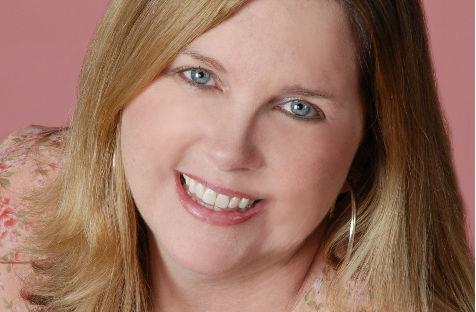My addiction to scrawling through Facebook may be the number one thing preventing me from author stardom. Maybe you feel the same. We could start a group to cure ourselves.
Marie Force wouldn’t join. In a post on Facebook Stories, she says Facebook is one of the main reasons she’s a best selling author. Force created fan groups to chat to readers and launched a social media network that placed her on the New York Times bestseller lists four times.
The internet is littered with advice for authors looking to harness the power of Facebook, particularly its fan pages. They offer a place for your (presumably adoring) fans to connect with you while you avoid spamming your friends and family with posts about your work. Win win.
Fan pages are an important tool for authors. They’re widely accessible to anyone on the web, not just to Facebook members. They offer a sense of community and they provide detailed analytics that allow you to track fan growth and find out in detail what about your work is most attractive to readers.
And because it is in real time, you have the opportunity to write-to-order, creating work you know your fans will love.
After all, interactivity is the key. While having a large number of fans is impressive, ‘more impressive will be the fact that with active use and engagement you grew your key metrics by ten or twenty percent over a period of several months or a year,’ says Annik LaFarge, a digital strategist with 25 years experience in publishing, told The Huffington Post.
It’s here Force excels.
Her books started taking off in late 2011 and she was looking for a way to capture and build upon that excitement. She came up with Marie Force Book Talk, a place her ‘most ardent supporters’ to talk about her books and other books they enjoy. It now has more than 1,400 people chatting away.
Its success led to something a little more specific: a group for Force’s McCarthys of Gansett Island. Over 5,500 people are currently talking about the fictional island on which the series is set.
Over time, Force made a group for each of her series and, eventually, a group for each book she’s published or working on. Now she runs 33 groups housing over 16,000 members.
While groups and fan pages aren’t the same thing, the same rules apply to their success.
Jane Friedman, web editor and digital strategist for the Virginia Quarterly Review, offers advice for would-be superstars looking to ride Facebook to fortune and fame. She says fans want a personal approach, not ‘blasts’ that go out to everybody.
She advises consciously creating thoughtful content to attract the kind of people you want reading your books. ‘If you don’t like the activity or conversation surrounding you—or you’re not getting the results you think you should—look at what you’re putting out.’
By creating spaces for people to talk about her work, Force encouraged people to create and perpetuate their own dedication and excitement for the stories. What cements your love for something more than talking to other people who feel the same?
‘Each of these groups becomes a book club for that particular story,’ she says, ‘with robust conversation and even a few arguments here and there among passionate readers.
‘The members of the McCarthy group spend days upon days casting the imaginary series movie and deciding what actors would play their favorite characters… They talk about which of the Gansett Island men they wouldn’t kick out of bed (pretty much all of them) and which couple or book is their favourite.’
The groups are about the fans first and foremost. While this is a key part of success for any group, the lesson is even more important for fan pages. Nothing kills a page more than ‘me, me, me posts’ says Brian Carter on All Facebook, and a page without interaction is soon a page no one sees. (Facebook’s algorithms ensure popular content dominates a user’s newsfeed. Popular posts go up, unpopular posts – and the pages that post them – disappear. No pressure.)
Force understandings what drives the popularity of her groups and by extension her books: readers talking about something they love. She provides a convenient and safe place for that to happen.
That’s not to say she doesn’t use the groups to drive sales or generate hype: ‘The series groups are about building awareness of what’s coming.’ She uses them to announce book covers and release dates, for example.
But the power of the groups seems to be the connection Force has with her readers. ‘The readers love that I’m active in the groups and that I pop into conversations whenever I have something to add,’ she says. The groups, all 33 of them, help users feel connected to her in a way they may not otherwise. After all, reading and writing can both be solitary experiences.
Facebook offers authors a way to promote themselves to their fans in a subtle, personal way. It’s a place for the soft sell – building visibility, awareness and fondness. It offers readers a connection.
Through her groups, Force’s says her readers ‘feel invested in my career and are always willing to help me spread the word about my new book. I’m their friend as well as their favorite author, and that’s a lovely combination.’
(Pictured: Marie Force’s fans flock to Facebook to share and discuss her work.)





